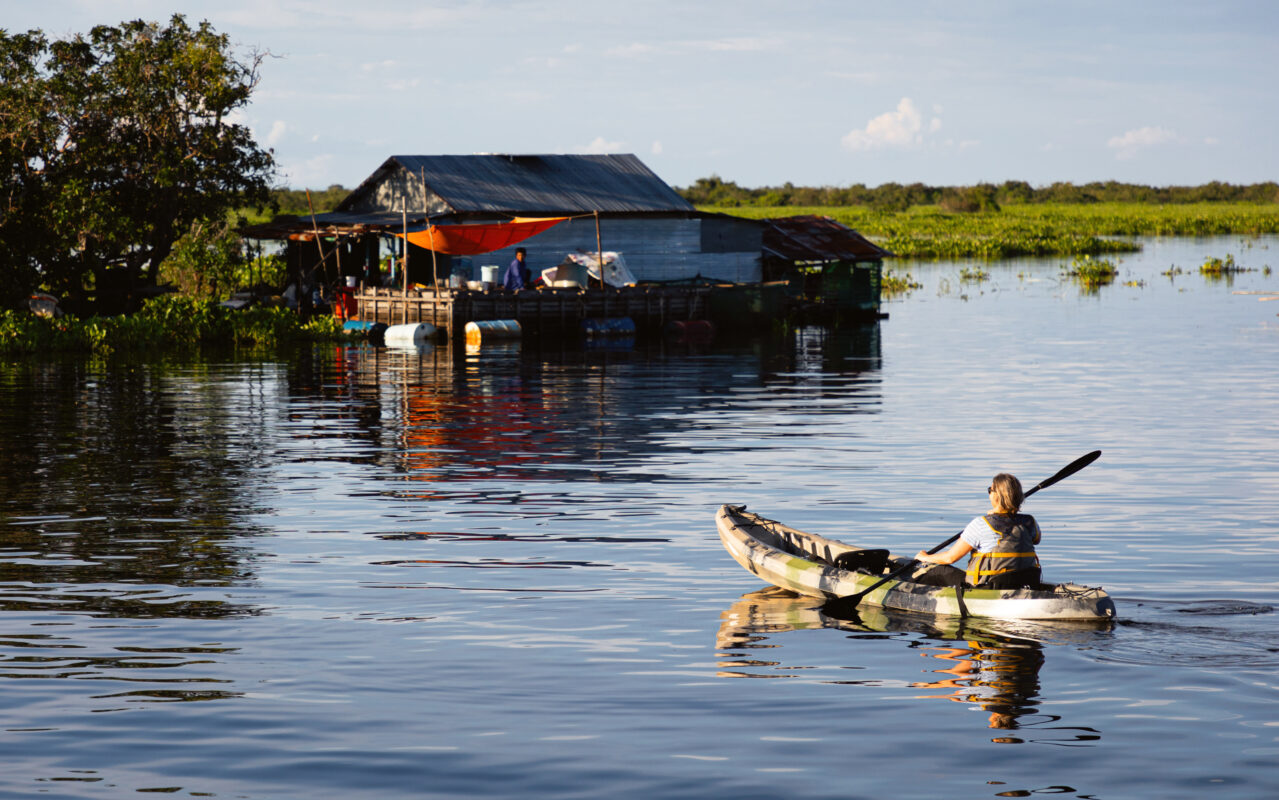The COVID-19 pandemic wreaked havoc on the world. International travel ground to a halt and countries were forced to implement strict processes and entry requirements to halt the spread of the virus. Thailand introduced quarantine measures and Thailand Pass. Thailand Pass required visitors to register details like vaccination status, flight, and hotel bookings, and confirmation of “Covid Insurance” for medical emergencies.
After two years of dealing with Covid, international travel is returning to normal. To help welcome visitors back to the Land of Smiles, the Thai government lifted its final restrictions on July 1st, 2022.
From July 1st, the following changes have been implemented for all international travelers.
- Foreigners do not need to show proof of Covid Insurance.
- All mandatory hotel quarantine has been removed.
- Thailand Pass is no longer required for foreign travelers entering Thailand.
- Vaccinated travelers do not need to provide proof of vaccination to Thai authorities before arriving.
- Unvaccinated travelers (including children traveling with unvaccinated parents) will need to complete an RT-PCR or Professional Antigen Test (Pro-ATK) 72 hours before departing for Thailand. Proof does not need to be uploaded before traveling.
- Airlines and Thai Immigration will do random checks to confirm travelers meet Covid prevention requirements (vaccination or Covid test).
Below is a full list of what international travelers need before entering Thailand.
Passport Validity / Visas
The first thing to check before planning to travel to Thailand is the validity of your passport. International travel requires that your passport is not expiring within six months of your travel date. If you have less than six months left on your passport, you cannot enter Thailand.
If you are planning to travel in the future, check your passport early so you know if you need to apply for a new one or not. It is best to check with your local embassy about how long it will take to receive your new passport. As people look to travel again, passport departments are swamped with new applications and this is causing a backlog in many countries.
There are several visas available to foreigners who are planning to visit Thailand. The visa you need will depend on where you are from, your purpose of travel, and how long you intend to stay.
Visa Exemption
A foreign visitor may enter Thailand under the Visa Exemption Program. Nationalities under the Visa Exemption Program may enter Thailand without a visa from a Thai Embassy or Consulate.
Upon arriving in Thailand, most nationalities who are part of the Visa Exemption Program may stay for up to 30 days. Certain nationalities can arrive as part of this program, but for a shorter time. It is best to check the country exemption list and confirm how long you can visit Thailand without needing to apply for a Visa.
Tourists arriving under visa exemption are eligible to extend their stay for up to a further 30 days by visiting a local Thai Immigration Office. The cost to extend is approximately 2000 baht.
There is often confusion about Visa Exemption and “Visa on Arrival”. Visa on Arrival is a 15-day visa for travelers from India, China, and 16 other countries. If you do not find your country on the Visa Exemption list, it is best to check the Visa on Arrival list.
There are some important things to note for Visa on Arrival:
- A passport must be valid for at least 30 days.
- The purpose of the visit is strictly tourist.
- A visitor must show an address in Thailand where they will be staying.
- A traveler must have a confirmed return flight.
- Must show proof of funds to the value of 10,000 baht per person or 20,000 baht for a family.
- A fee of 2000 baht is paid on arrival. The fee must be paid in cash and in Thai baht.
Tourist Visa and Special Tourist Visa (STV)
Foreigners may also apply for a Tourist Visa from a Thai embassy or consulate. There is the normal 60-day tourist visa that can be extended for additional 30 days, or the 90-day Special Tourist Visa (STV), which can be extended for 90 days twice at a local immigration office. There are certain requirements needed for the STV, but it allows a visitor to potentially stay in Thailand for 9 months. The Special Tourist Visa is currently scheduled to halt applications in September.
Contact your local Thai Embassy to verify what documents are needed to complete the process. When your visa is approved, the Embassy will place a sticker on your passport, so allow time for potential postage.
For those entering Thailand for a different purpose of stay, they need to obtain a Thai visa from their local Thai Embassy or Consulate prior to coming to Thailand.
Non-Immigrant Visa
Foreigners may apply for a wide range of long-term non-immigrant visas:
- Non-immigrant B Visa – for conducting business or employment
- Non-immigrant O visa – for visiting Thai spouse and family
- Non-immigrant ED visa – for students of recognized institutions in Thailand and their Parents or Legal guardian
- Non-immigrant O retirement visa – for those who wish to retire in Thailand
- Non-immigrant OA and OX visa – for those who wish to obtain a Thailand retirement visa for a long stay (it differs from type O visa)
The above visas can be organized at a local Thai Embassy or Consulate. The paperwork can be quite involved, but there are companies that can help.
Siam Legal International is a reputable company in Thailand that has offered visa assistance to foreign visitors for years. They are well versed in Thai immigration policies and processes. If you would like to streamline your long-term stay in Thailand, it is worth contacting them.
Thai Elite Visa
If you wish to make Thailand easily accessible for many years to come or are perhaps thinking of relocating permanently, it is worth having a look at the Thai Elite Visa.
The Thai Elite Visa allows foreign citizens to live in Thailand for 5, 10, or even 20 years. Thai Elite members do not need to worry about some of the eligibility criteria that are needed when applying for other long-term visas.
The Thai Elite visa is an exclusive visa that offers a host of benefits to holders. If you want to enjoy “Thai life” for the long term, you can read more about the Thai Elite Visa.
Proof of Vaccine or Testing
How a visitor enters Thailand will still depend on their vaccination status.
Vaccinated Travelers
Vaccinated travelers do not need to provide proof of vaccination to Thai authorities before arriving. A vaccinated traveler will need to have a copy of their vaccination certificate either printed or on a digital device and be able to present it if asked.
Thailand does not require visitors to have had a third booster shot. 2 shots (1 shot for Jansen) is considered fully vaccinated and accepted.
Unvaccinated Travelers
Unvaccinated travelers will need to complete an RT-PCR test or Professional Antigen Test (Pro-ATK) within 72 hours before boarding a flight in their departure country. They will need to have a copy of the test result and be able to present it if asked.
The RT-PCR and Pro-ATK test must be completed by a medical professional and a test report received. The home ATK (RAT) self-test is not acceptable for entering Thailand.
Vaccination and Testing for Children
The testing requirement for children under 18 depends on the vaccination status of their parents. Children traveling with vaccinated parents do not need to complete any RT-PCR or Pro-ATK test before entering Thailand. Children traveling with unvaccinated parents will need to complete the same test as their parents within 72 hours of departing their home country.
It is important to note that many airlines are still asking for proof of vaccination or a Covid test before boarding flights. If you cannot produce one of these documents, you might not board the flight.
Though foreigners no longer need to provide evidence of testing or vaccination prior to arriving in Thailand, they are still required. Thai authorities are conducting random checks of international passengers and if a vaccination certificate or test result cannot be shown, a visitor will not be allowed to enter Thailand.
Insurance
Insurance has become a dirty word during Covid. Seasoned travelers have always understood the importance of having comprehensive Travel Insurance when traveling abroad. Travel insurance protected travelers from unexpected incidents like:
- Medical emergencies
- Personal injury & accidents
- Missed or delayed flights
- Damage to belongings
- Lost luggage
It was one of those things that people hoped they would never need but regretted not having when needed.
During the Pandemic, proof of insurance became mandatory when visiting countries like Thailand. Over time, people stopped referring to insurance as “Travel Insurance” and always referred to it as “Covid Insurance”. Because you had to have it, it was another hoop to jump through.
The good news is that you no longer need to provide proof of “Covid Insurance” to enter Thailand. But it is recommended because all the things listed above can still happen, and Covid has not disappeared completely.
Foreign visitors are not eligible for free medical care in Thailand if something should happen. Whether it be an accident or personal injury, if a visitor needs medical help, or has a canceled flight, they will need to cover any expenses themselves. Depending on the severity, this could be hundreds, if not thousands, of dollars.
Buying good Travel Insurance shouldn’t break the bank. Protecting yourself is cheaper than medical bills, new flights, and replacing lost luggage.
You can buy Travel Insurance from many companies. But if you are looking for coverage that is designed for Thailand, is trusted by Thai authorities and medical institutions, and offers a helpline with people who speak the local language and know the country’s procedures, it is worth checking out AXA Thailand.
Their policies are well priced, straightforward, offer many benefits to its customers, and can be approved in minutes.
Hotel and Proof of Address Updates
Previously, a foreign visitor would complete an Arrival Card (TM6) before entering Thailand. This requirement has been temporarily removed as part of a new initiative by the Thai government.
A visitor no longer needs to provide proof of a hotel booking before departing their country, but will still need to provide an address when passing through Passport Control in Thailand. This address can be a hotel, home, or friend’s address.
This is especially true with people arriving on a pre-approved visa from a Thai Embassy or Consulate.
From July 1, travelers are no longer required to book a SHA+ hotel and undergo an RT-PCR test on arrival. Most hotels have removed their SHA+ quarantine packages, but you will still see the SHA+ badge displayed on hotels.
Thailand Pass
From July 1st, 2022, foreign travelers no longer need to apply for a Thailand Pass before entering Thailand. The system is still in place but is now a platform where visitors can notify the Thai authorities and medical facilities if they are diagnosed positive for Covid during their stay.
If you need to access the Thailand Pass system while in Thailand, please visit https://tp.consular.go.th/ and register by filling in your personal details on the Thailand Pass registration page.
Flights
International Arrivals
Travelers do not need to provide any proof of flights before leaving their home country.
There is a lot of discussion about whether a return flight needs to be booked when entering Thailand. Technically, all visitors should have a return flight booked. However, you will not always be asked to present evidence of a return flight.
If a visitor is entering Thailand with a pre-approved visa, or Visa on Arrival, they will often be asked to present details of their exit flight. Sometimes a visitor did not have a return flight and had to book a flight on the spot before being processed through Passport Control. To avoid this, it is best to book an exit flight that can be changed. You can always change your plans once in Thailand.
Domestic flights
There are no longer any restrictions on domestic flights and travel. When entering Thailand at an international terminal, a traveler is free to transit to a domestic flight right away. “Sealed” flights have been removed.
Domestic airlines will not always ask for proof, but it is best to have your vaccination certificate or Covid test result on hand in case you are asked to show it.
List of Approved COVID-19 Vaccines
As of December 1, the MoPH has approved the following vaccines:
- Pfizer–BioNTech or Comirnaty
- Janssen or Janssen/Ad26.COV2.S
- AstraZeneca or Covishield
- Sinopharm or COVILO
- Moderna
- CoronaVac or SinoVac
- Covexin
- Sputnik V
- Medigen
- Sputnik Lite






















